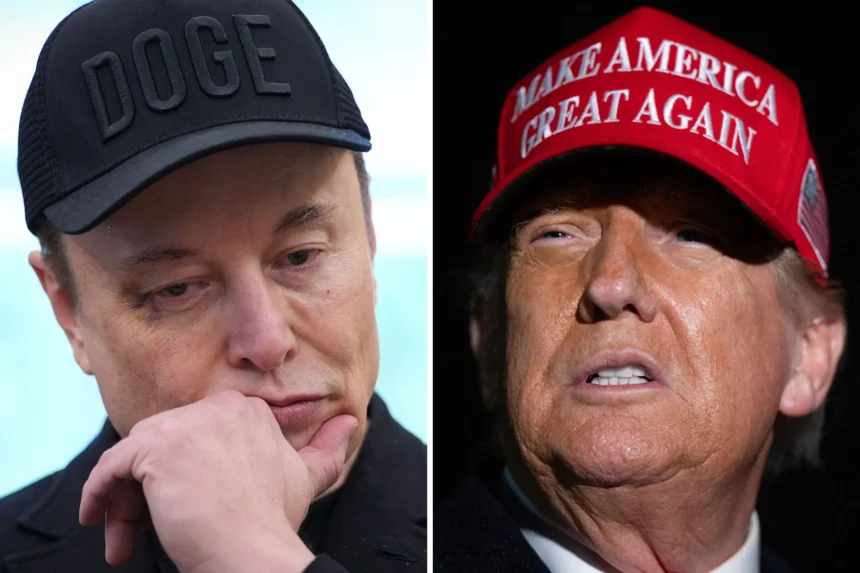The political partnership between US President Donald Trump and tech billionaire Elon Musk has exploded into a very public feud, with both men exchanging sharp barbs on their respective social media platforms. Once seen as allies shaping Republican momentum, they now appear to be on opposite ends of a political battlefield.
It all began Thursday morning when Trump publicly expressed “disappointment” over Musk’s criticism of his administration’s signature spending bill. “It might be the end of our great relationship,” Trump said.
Musk fired back with:
“Without me, Trump would’ve lost the election.”
He called Trump “ungrateful” and said he was instrumental in the Republicans’ electoral victory.
The Bill That Broke the Bond
The feud centers around a massive tax and spending bill recently passed by the House. Musk, who served 129 days as head of the Department of Government Efficiency (DOGE), called the bill “a disgusting abomination” and urged Americans on his platform X to contact lawmakers and oppose the legislation.
Trump, speaking during a joint press conference with German Chancellor Friedrich Merz, defended the bill and claimed Musk’s real concern was the removal of electric vehicle subsidies that directly affect Tesla. Musk denied the accusation, tweeting:
“Cut EV/solar incentives, fine. But cut oil & gas subsidies too. That’s fairness!”
Political Heat, Business Fallout
Taking things further, Musk posted that Trump’s global tariff strategy would drag the US into a recession. He even hinted—without providing evidence—that Trump might be mentioned in unreleased Jeffrey Epstein files.
Trump, in response on Truth Social, wrote:
“Elon just went CRAZY… Want to save billions? End all of his subsidies and government contracts!”
Musk retaliated by announcing that SpaceX would begin decommissioning its Dragon spacecraft—used in missions to the International Space Station.
Following the very public spat, Tesla stock took a nosedive, plummeting by 14% within hours.
Debt Debate and Healthcare Cuts
According to the nonpartisan Congressional Budget Office, the new spending bill could increase US debt by $2.4 trillion over the next decade and cause nearly 11 million Americans to lose government-backed health coverage. The White House, however, disputes these figures, citing projected tariff revenues.














